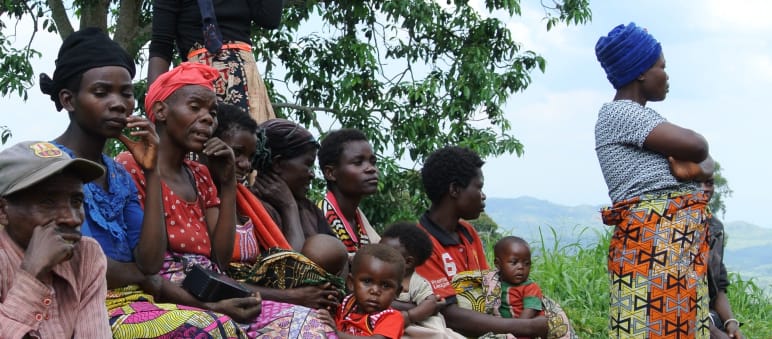
DRC: Expulsion of the Batwa people ruled unjust
The African Commission on Human and Peoples’ Rights has issued a historic ruling in favor of the Indigenous Batwa and against “fortress conservation”: The Batwa’s human rights were violated when they were forcibly evicted during the creation of the Kahuzi-Biega National Park (PNKB) in the Democratic Republic of Congo (DRC). They have the right to return to their ancestral lands.
The ruling also recognizes Indigenous peoples as the best guardians of forests and biodiversity. Evicting Indigenous peoples from their land to protect nature and biodiversity is wrong. Given the Batwa’s long tradition of protecting the region’s forests, their eviction was also detrimental to the environment.
“The decision of the African Commission on Human and Peoples’ Rights reaffirms our position that the concept of ’fortress conservation’ is misguided. Evictions to create deserted protected areas are unacceptable. Human rights violations are not an acceptable price to pay for conservation,” said Marianne Klute, Co-Chair of Rainforest Rescue.
“Germany has been one of the most important financial backers of the national park for many years. The German government therefore has a responsibility to ensure that the decision is implemented.”
The government in Kinshasa must now implement the ruling.
In November 2022, a foundation had already been laid in the DRC with a law that gives the Batwa and other peoples easier access to justice and basic social services, and recognizes their customs and traditions. People must be involved in important decisions in their own language. Indigenous people should benefit from the land they live on and the resources it contains.
When Kahuzi-Biega National Park (PNKB) was established in the 1970s to protect gorillas, it displaced the Batwa, who had lived in the forest for generations. Since then, many have lived on the fringes of the protected area, impoverished and exposed to extreme violence: In 2018, park rangers and soldiers killed at least 20 people, raped numerous women, and displaced hundreds who returned to the park in distress, according to a 2022 report by the human rights organization Minority Rights Group.
In 2021, we visited the Batwa in a village near the city of Bukavu and listened to their accounts of the violence. Since then, we have been working closely with the local organization CAMV. You can read more about our joint project here.
In its decision, the African Commission on Human and Peoples’ Rights found that the DRC government had violated 11 articles of the African Charter. These include the rights to life, property, natural resources, development, religion and culture. The Commission ruled that the DRC must:
- grant the Batwa collective land rights over their traditional territories within the PNKB
- legally recognize the Batwa as full citizens of the DRC
- issue a full public apology to the Batwa for the abuses, deaths and inhumane living conditions caused by park rangers
- pay reparations to the Batwa and ensure that they benefit from the revenues of the national park and forest
- ensure the departure of non-Batwa people from Batwa land.
The human rights organizations Minority Rights Group and Environment, Resources Nature and Development (ERND) initiated the proceedings with the Commission on behalf of the Batwa in 2015.
Page 57 of the ruling is particularly relevant.
The Commission has made some corrections to the text of the ruling.
This page is available in the following languages:
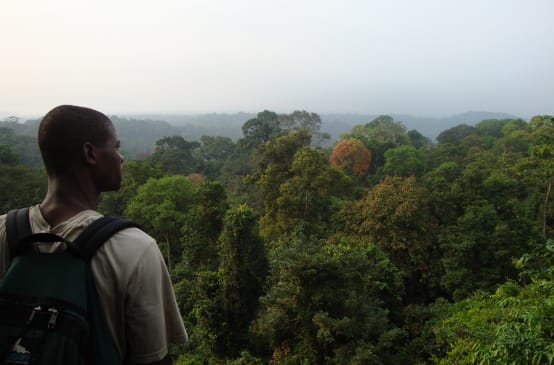
Protecting Africa’s rich natural heritage
The Congo Basin is home to the second largest rainforest in the world, habitat of gorillas, chimpanzees and forest elephants. Our partners courageously defend these forests.
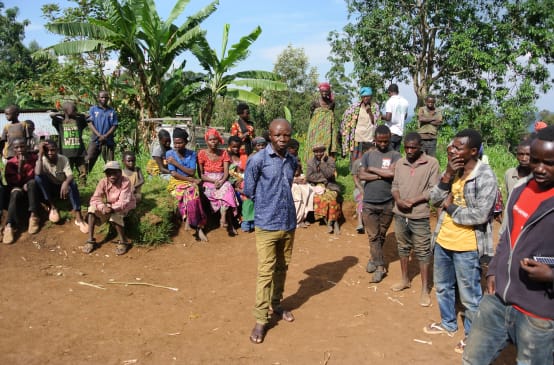
The Batwa people and the gorillas
Our partner CAMV is helping Indigenous Batwa families reclaim land, plant trees and protect gorillas in Kahuzi-Biega National Park's rich rainforest.
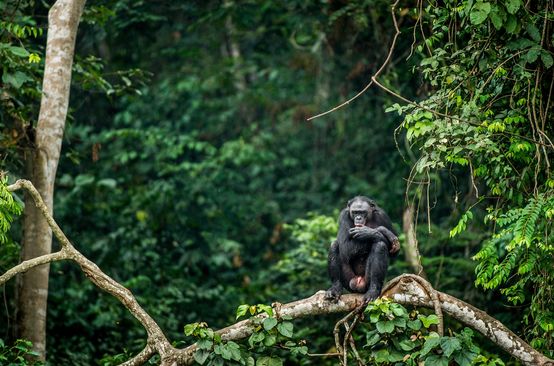
DRC: Do not sacrifice Congo's rainforests to the oil industry!
President Tshisekedi wants to sacrifice large areas of the Congo rainforest to the oil industry. This would be a disaster for the climate, biodiversity and local people.
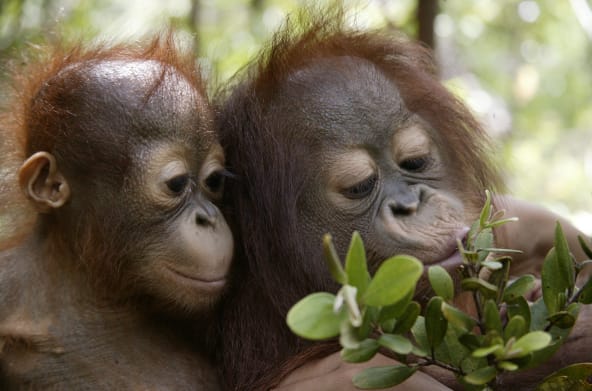
The rainforest
A green sea of ferns, mosses, vines and ancient trees. Iridescent butterflies and colorful birds. Flowers in every hue of the rainbow. The “green lung” is a natural wonder of the world. Find out more about the world’s most diverse, fascinating and threatened ecosystem.